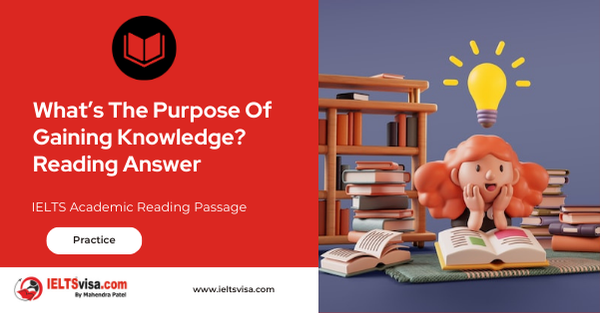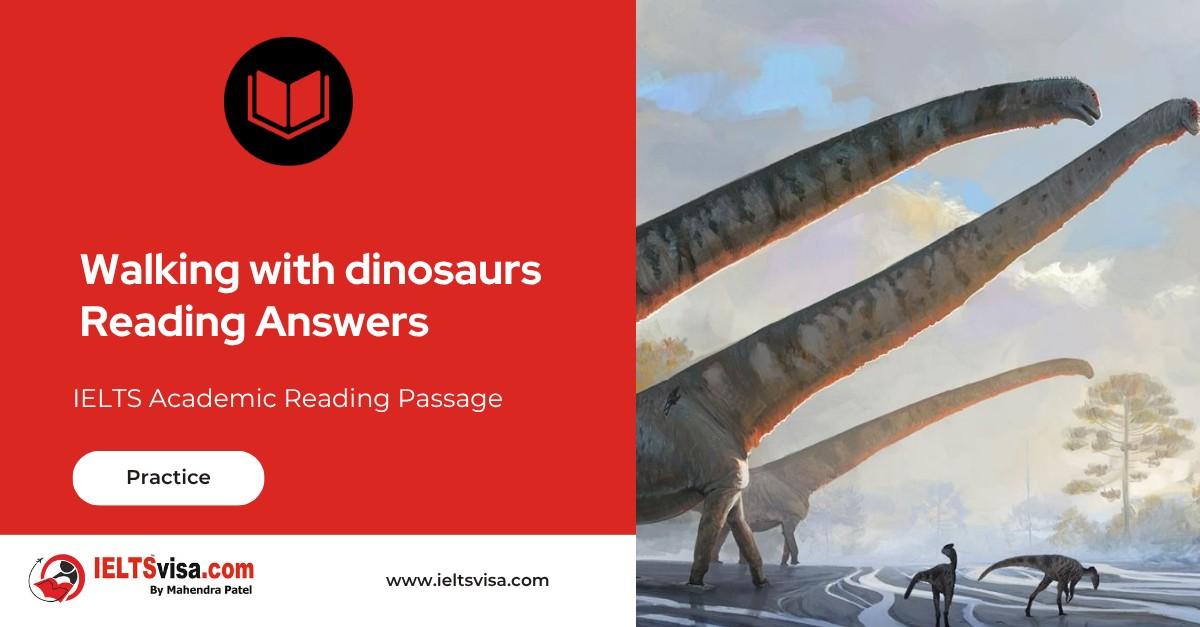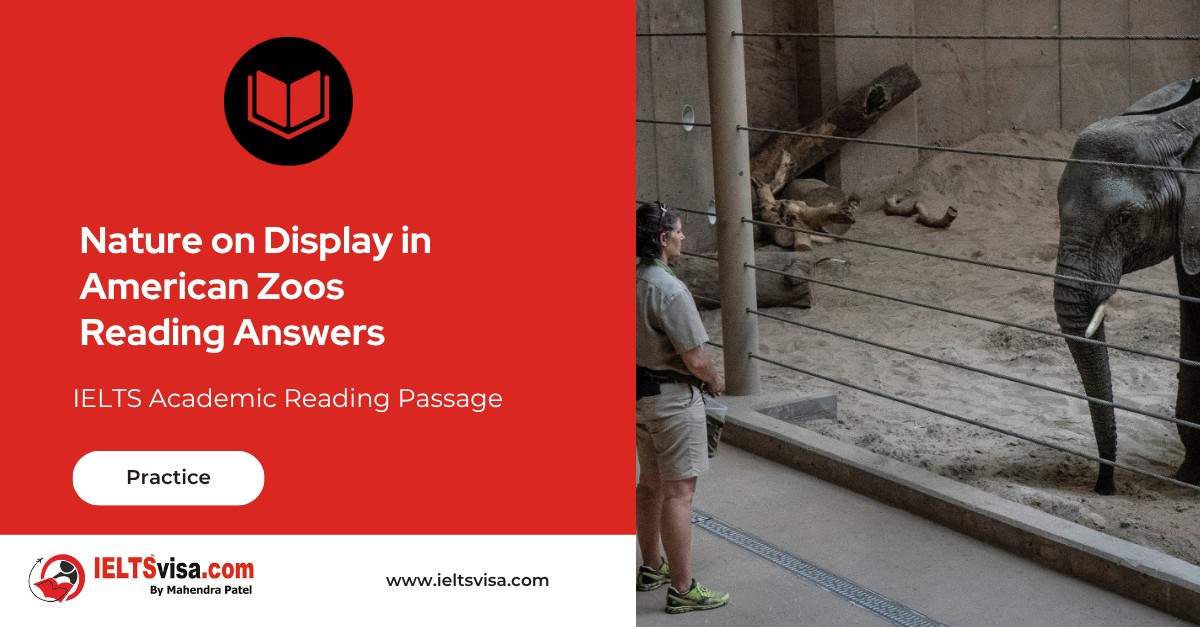What’s The Purpose Of Gaining Knowledge? Reading Answer
IELTS Academic Reading Passage
A
‘I would found an institution where any person can find instruction in any subject’ That was the founders motto for Cornell University, and it seems an apt characterization of the different university, also in the USA, where I currently teach philosophy. A student can prepare for a career in resort management, engineering, interior design, accounting, music, law enforcement, you name it. But what would the founders of these two institutions have thought of a course called Arson for Profit’? I kid you not: we have it on the books. Any undergraduates who have met the academic requirements can sign up for the course in our program in ‘fire science’.
B
Naturally, the course is intended for prospective arson investigators, who can learn all the tricks of the trade for detecting whether a fire was deliberately set, discovering who did it, and establishing a chain of evidence for effective prosecution in a court of law. But wouldn’t this also be the perfect course for prospective arsonists to sign up for? My point is not to criticize academic programs in fire science: they are highly welcome as part of the increasing professionalization of this and many other occupations. However, it’s not unknown for a firefighter to torch a building. This example suggests how dishonest and illegal behavior, with the help of higher education, can creep into every aspect of public and business life.
C
I realized this anew when I was invited to speak before a class in marketing, which is another of our degree programs. The regular instructor is a colleague who appreciates the kind of ethical perspective I can bring as a philosopher. There are endless ways I could have approached this assignment, but I took my cue from the title of the course: ‘Principles of Marketing’. It made me think to ask the students, ‘Is marketing principled?’ After all, a subject matter can have principles in the sense of being codified, having rules, as with football or chess, without being principled in the sense of being ethical. Many of the students immediately assumed that the answer to my question about marketing principles was obvious: no. Just look at the ways in which everything under the sun has been marketed; obviously it need not be done in a principled (=ethical) fashion.
D
Is that obvious? I made the suggestion, which may sound downright crazy in light of the evidence, that perhaps marketing is by definition principled. My inspiration for this judgement is the philosopher Immanuel Kant, who argued that any body of knowledge consists of an end (or purpose) and a means.
E
Let us apply both the terms ‘means’ and ‘end’ to marketing. The students have signed up for a course in order to learn how to market effectively. But to what end? There seem to be two main attitudes toward that question. One is that the answer is obvious: the purpose of marketing is to sell things and to make money. The other attitude is that the purpose of
marketing is irrelevant: Each person comes to the program and course with his or her own plans, and these need not even concern the acquisition of marketing expertise as such. My proposal, which I believe would also be Kant’s, is that neither of these attitudes captures the significance of the end to the means for marketing. A field of knowledge or a professional endeavor is defined by both the means and the end;hence both deserve scrutiny. Students need to study both how to achieve X, and also what X is.
F
It is at this point that ‘Arson for Profit’ becomes supremely relevant. That course is presumably all about means: how to detect and prosecute criminal activity. It is therefore assumed that the end is good in an ethical sense. When I ask fire science students to articulate the end, or purpose, of their field, they eventually generalize to something like, ‘The safety and welfare of society,’ which seems right. As we have seen, someone could use the very same knowledge of means to achieve a much less noble end, such as personal profit via destructive, dangerous, reckless activity. But we would not call that firefighting. We have a separate word for it: arson. Similarly, if you employed the ‘principles of marketing’ in an unprincipled way, you would not be doing marketing. We have another term for it: fraud. Kant gives the example of a doctor and a poisoner, who use the identical knowledge to achieve their divergent ends. We would say that one is practicing medicine, the other, murder.
Questions 1-6
Reading Passage has six sections, A-F.
Choose the correct heading for each section from the list of headings below. Write the correct number, i-viii, in boxes 1-6 on your answer sheet.
- Section A
- Section B
- Section C
- Section D
- Section E
- Section F
|
|
List of Headings |
|
i |
Courses that require a high level of commitment |
|
ii |
A course title with two meanings |
|
iii |
The equal importance of two key issues |
|
iv |
Applying a theory in an unexpected context |
|
v |
The financial benefits of studying |
|
vi |
A surprising course title |
|
vii |
Different names for different outcomes |
|
viii |
The possibility of attracting the wrong kind of student |
Questions 7-10
Complete the summary below.
Choose NO MORE THAN TWO WORDS from the passage for each answer. Write your answers in boxes 7-10 on your answer sheet.
The ‘Arson for Profit’ course
This is a university course intended for students who are undergraduates and who are studying 7…………………. The expectation is that they will become 8………………… specialising in arson. The course will help them to detect cases of arson and find 9………………… of criminal intent, leading to successful 10…………….. in the courts.
Questions 11-14
Do the following statements agree with the views of the writer in Reading Passage? In boxes 11-14 on your answer sheet, write
YES if the statement agrees with the views of the writer NO if the statement contradicts the views of the writer
NOT GIVEN if it is impossible to say what the writer thinks about this
11. It is difficult to attract students onto courses that do not focus on a career.
12. The ‘Arson for Profit’ course would be useful for people intending to set fire to buildings.
13. Fire science courses are too academic to help people to be good at the job of firefighting.
14. The writer’s fire science students provided a detailed definition of the purpose of their studies.

Solution For: What’s The Purpose Of Gaining Knowledge? Reading Answer
| 1. vi | 8. investigators |
| 2. viii | 9. evidence |
| 3. ii | 10. prosecution |
| 4. iv | 11. NOT GIVEN |
| 5. iii | 12. YES |
| 6. vii | 13. NO |
| 7. fire science | 14. NO |
Review and Practice
- Regularly practice with IELTS reading samples and time yourself to get used to the pressure of the exam.
- Review your mistakes to understand where you went wrong and how to avoid similar errors in the future.
Our Books
Master IELTS Speaking Part 1
IELTS Writing Task 1 Book
IELTS Writing Task 2 Book
What’s The Purpose Of Gaining Knowledge? Reading Answer Explanation
Comin Soon
Practice IELTS Other Modules
IELTS Listening
The IELTS Listening test assesses how well you can understand spoken English in various contexts. It lasts about 30 minutes and is divided into four sections with a total of 40 questions. The listening tasks become increasingly difficult as the test progresses.
IELTS Academic Reading
The IELTS Academic Reading section assesses your ability to understand and interpret a variety of texts in academic settings. It is designed to evaluate a range of reading skills, including skimming for gist, reading for main ideas, reading for detail, understanding inferences, and recognizing a writer's opinions and arguments.
IELTS Speaking
The IELTS Speaking test assesses your ability to communicate in English on everyday topics. It lasts 11-14 minutes and consists of three parts: introduction, cue card, and a discussion based on the cue card topic.
IELTS General Reading
IELTS General Reading tests your ability to understand and interpret various types of texts. Here are some key areas and types of content you can expect to encounter in the reading section, along with tips for effective preparation.
IELTS Academic Writing Task 1
In IELTS Academic Writing Task 1, you are presented with a visual representation of information, such as graphs, charts, tables, or diagrams, and you are required to summarize, compare, or explain the data in your own words.
IELTS General Writing Task 1
In IELTS General Writing Task 1, you are required to write a letter based on a given situation. The letter can be formal, semi-formal, or informal, depending on the prompt. Here’s a breakdown of the key components to include in your letter
IELTS Academic Writing Task 2
In IELTS Academic Writing Task 2, you are required to write an essay in response to a question or topic. Here’s a guide to help you understand the essential elements of this task
IELTS Exam Tips
To succeed in the IELTS exam, practice regularly, familiarize yourself with the test format, improve your vocabulary, develop time management skills, and take mock tests to build confidence.
Grammer for IELTS
Grammar is the foundation of effective communication in English. Understanding tense usage, subject-verb agreement, and sentence structure enhances clarity and coherence in writing and speaking.
Vocabulary for IELTS
Vocabulary plays a crucial role in the IELTS (International English Language Testing System) exam, especially in the Speaking and Writing sections. Here’s an overview of why vocabulary is important and how it impacts your performance
RECENT IELTS SAMPLES QUESTIONS AND ANSWERS
Walking with dinosaurs
Peter L. Falkingham and his colleagues at Manchester University are developing techniques that...
Money as the Unit of Amount Reading Answers
The most difficult aspect of money to understand is its function as a unit of account. In...
WEATHERING IN THE DESERT
In the deserts, as elsewhere, rocks at the earth's surface are changed by weathering, which...
Nature on Display in American Zoos
The first zoo in the United States opened in Philadelphia in 1874, followed by the Cincinnati...
Can We Prevent the Poles From Melting
Such is our dependence on fossil fuels, and such is the volume of carbon dioxide we have...
Air conditioning the earth reading answers
The circulation of air in the atmosphere is activated by convection, the transference of heat...













